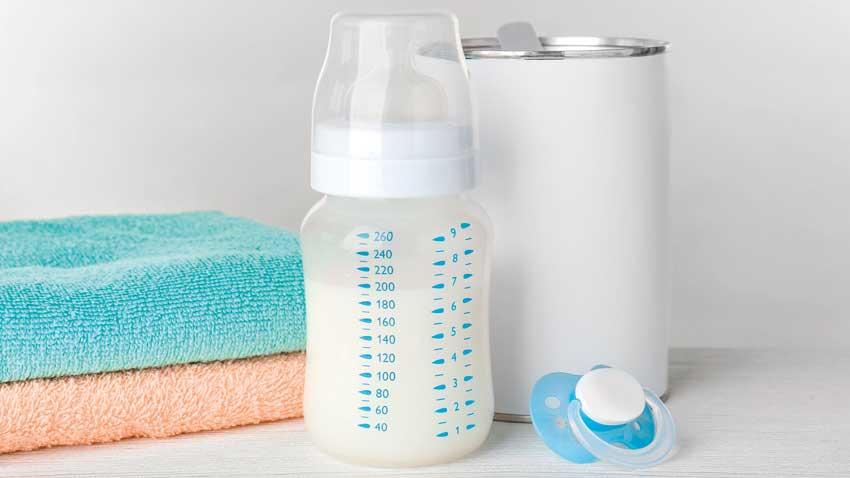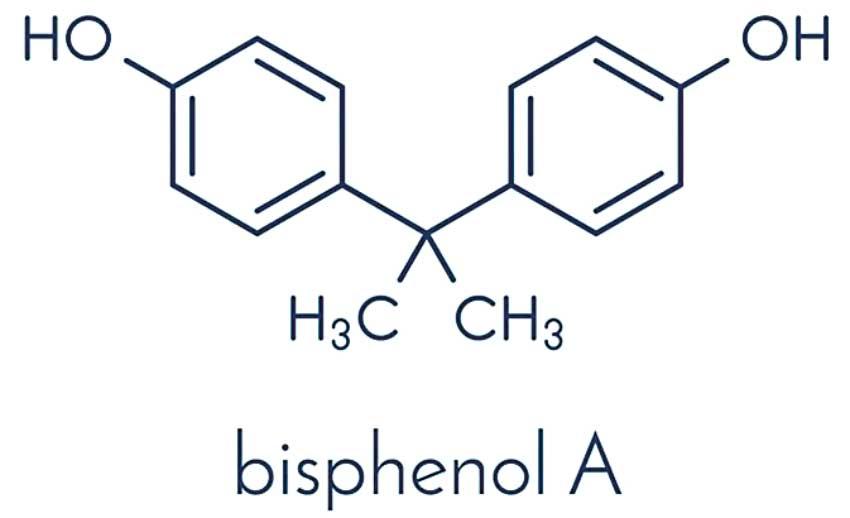10 Mar 2022 - {{hitsCtrl.values.hits}}

BPA exposure is linked to several adverse health effects including cancer, fertility disorders, and sexual dysfunction both in men and women, as well as diabetes
Many countries have moved to ban BPA from baby bottles, but there is strong evidence that replacement chemicals exhibit the same health impacts
BPA is legally identified as toxic in many countries and is categorised as an endocrine disruptor in the European Union (EU)
 Many parents rely on the convenience of plastic food containers, especially with feeding bottles for babies. They are inexpensive and are hard to break. But are they safe?
Many parents rely on the convenience of plastic food containers, especially with feeding bottles for babies. They are inexpensive and are hard to break. But are they safe?
The Centre for Environmental Justice (CEJ) said that feeding bottles and food containers intended for children and babies in Sri Lanka have been found with bisphenol A (BPA) which is a harmful chemical for them.
A (BPA), is a chemical used to harden plastic and are used as chemical building blocks in polycarbonate plastics and epoxy resins. They are widely used in reusable food and beverage containers, reusable water bottles, the linings of food cans, medical and sports equipment, spectacle lenses, thermal paper receipts, and plastic water pipes.
 Issuing a report the International Pollutants Elimination Network (IPEN) and CEJ called for immediate national and global restrictions on the use of the chemical BPA in food and beverage containers.
Issuing a report the International Pollutants Elimination Network (IPEN) and CEJ called for immediate national and global restrictions on the use of the chemical BPA in food and beverage containers.
Executive Director of CEJ Dilena Pathragoda speaking to the Daily Mirror said that the report was released after studies in eight countries, which showed that the chemical was present in 76 out of the 98 feeding bottles and food containers analysed.
However, she said two-thirds of the sampled bottles labelled as being BPA-free were found to contain the chemical. BPA exposure is linked to several adverse health effects including cancer, fertility disorders, and sexual dysfunction both in men and women, as well as diabetes.
BPA is legally identified as toxic in many countries and is categorised as an endocrine disruptor in the European Union (EU). Quoting IPEN Pathragoda said that “we found that even the products were mislabelled as BPA-free. Thereby the manufacturer tricks concerned parents into buying products that can harm their babies. We need strict rules for labelling toxic chemicals in consumer products as well as a strong surveillance system to monitor their implementation,” Pathragoda said.
According to the report, she said a number of countries, including EU member states as well as some East Asian countries such as Malaysia, China, and Indonesia have restricted the use of BPA in baby bottles.
Health hazard to all
Through their research IPEN found that BPA is able to leach into liquid content, in 78 per cent of the 98 products tested. One of the mislabelled samples violated Malaysia’s Food Regulations, as the use and import of polycarbonate baby bottles with BPA is prohibited in that country, she said.
A high production volume chemical, most people are exposed to BPA when it leaches from food contact materials into the foods and beverages they consume.
BPA leaches from landfills to contaminate wastewater, groundwater, and freshwater and has been found around the world in beach sand from plastic marine waste. BPA, listed as a substance of very high concern by the European Union, has been demonstrated to be toxic by hundreds of studies.

Many countries have moved to ban BPA from baby bottles, but there is strong evidence that replacement chemicals exhibit the same health impacts.
A large body of evidence confirms that BPA can affect brain development and behaviour. Exposure can increase anxiety, depression, hyperactivity, inattention, behavioural problems, and is also associated with adverse reproductive outcomes affecting cell division in eggs.
BPA is associated with Polycystic Ovary Syndrome (PCOS) - a complex hormonal condition associated with irregular menstrual cycles, reduced fertility, and increased risk of diabetes. In men, BPA affects fertility and is associated with sexual dysfunction among men exposed to high occupational levels. BPA is associated with breast, prostate, ovarian, and endometrial cancers.
Meanwhile, the IPEN has issued harmful chemical types in plastic which contain in feeding bottles and food containers around the world.
Alkylphenols - Commonly used in latex paints, pesticides, industrial cleaners, detergents, personal care products, and many different kinds of plastics as UV stabilizers, alkylphenols are used to spread substances like paints and coatings over surfaces
Phthalates - Phthalates are chemical additives widely used to produce or promote flexibility and to reduce brittleness in plastics. Phthalates are used as plasticizers in PVC consumer, medical, and building products, as matrices and solvents in personal care products, and as fillers in medications and dietary supplements, food and beverage packaging, and children’s toys.
Perfluorinated - Perfluorinated chemicals are widely used in water and stain-resistant clothing, food contact wrappers, lubricants, carpet treatments, paints, cookware, and as a dispersant in firefighting foams, as well as other industrial and consumer applications.
Brominated flame retardants (BFRs) - Brominated flame retardants (BFRs) are a class of chemicals used to reduce flammability in plastic products and prevent the spread of fires. They are used in foams, polystyrenes, and epoxy resins that are used to manufacture electronic casings and wire coatings (examples include the plastic casings for computers, TVs, and home appliances), textiles, furniture foams, carpets, building materials, and are commonly found in plastic children’s toys.
Dioxins and UV stabilizers - UV stabilizers are chemical additives used to protect plastic building materials, automotive parts, waxes, and paints from deterioration due to UV radiation. Several UV stabilizers are on the Candidate List of Substances of Very High Concern by the European Chemicals Agency (ECHA) because of their persistent, bio-accumulative, and toxic nature. The Swiss government has recently submitted a proposal to the Stockholm Convention to list UV-328, for listing as a Persistent Organic Pollutant under provisions of the
Stockholm Convention.
26 Dec 2024 10 minute ago
26 Dec 2024 1 hours ago
26 Dec 2024 3 hours ago
26 Dec 2024 4 hours ago
26 Dec 2024 4 hours ago